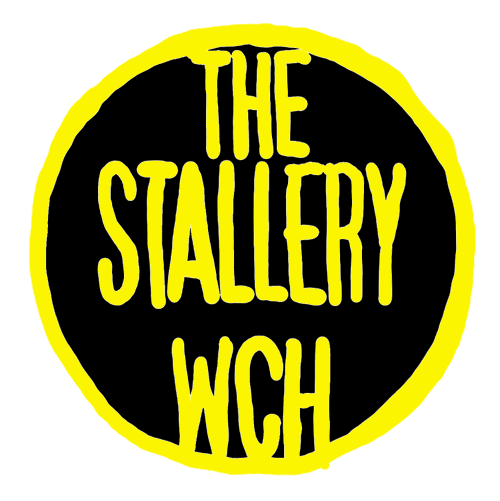Famous by Proxy (2019) by CHANG.
Exhibition Dates: Oct 4 - Oct 27, 2019
Opening Hours: Wed-Sun, 11AM-7PM
THE STALLERY
82A Stone Nullah Lane
Wan Chai, Hong Kong
POPUP EXHIBITION AT ETHOS
LOCATION: G/F 97 Hill Rd, Shek Tong Tsui, Hong Kong
Dates: Sep 27 - Oct 2, 2019
INSTALLATION VIEW
ABOUT THE EXHIBITION
The Stallery WCH, in partnership with L'Epicerie Fine HK and Tai Lung Fung, proudly presents Famous By Proxy, a solo exhibition by Ernest Chang. With this series, Chang’s goal was to create visual, cultural, and historical hybrids. The compositions in the works allude to the classical iconography of important European paintings since the Renaissance; at the same time, they are populated by many instantly recognisable characters lifted from a contemporary mass culture originating from the U.S. and Japan. Through juxtaposing the art-historical significance of famous paintings with the global popularity of cartoon and anime figures, Chang fuses the Western artistic tradition with our contemporary visual culture and elevate the truth, beauty, and wisdom that he sees in both.
THE ARTIST'S STATEMENT
“Art is supposed to communicate, to make people talk and think.”- CHANG.
With this series, my goal was to create visual, cultural, and historical hybrids. The compositions in the works allude to the classical iconography of important European paintings since the Renaissance. At the same time, they are populated by many instantly recognisable characters lifted from a contemporary mass culture originating from the US and Japan. Through juxtaposing the art-historical significance of famous paintings with the global popularity of cartoon and anime figures, I attempted to fuse the Western artistic tradition with our contemporary visual culture and elevate the truth, beauty, and wisdom that I see in both. This series, his goal was to create visual, cultural, and historical hybrids.
The American poet Austin O'Malley once wrote, "It is twice as hard to crush a half-truth as a whole lie." I think this is true the other way too, especially in the age of speedy digital reproduction and transmission. It is twice as easy to promote a half-lie as a whole truth. I know that "half-lies" or "hybrid truths"— in the form of "fake news", for instance — are often the cause of conflict and social and economic problems in our time. So, my question during the creative process was: "Are my works in this series, which are in so many ways visual, cultural, and even art historical "hybrids", "half lies"? Do they, for example, entice contemporary viewers with pop colours and familiar cartoon and anime characters, using these eye-catching visual elements just to "lure" viewers to engage with the classical paintings alluded to?
My hope is that, instead of just using "half" of the elements in these works to attract viewers to engage with the "other half", I can prompt people to reassess the value of both. I hope that, through the juxtaposition of half-tone dots reminiscent of comics drawings with the visual gravitas of the dramatic poses and figurations borrowed from Renaissance, Mannerist, and Baroque paintings, those who are first drawn to the works by the familiar figures, bright colours and bold lines will explore the cultural significance and moral teachings of the iconography; and vice versa, those who are first attracted by the recognisable figurations and religious scenes will reevaluate the elements of popular visual culture that fill the compositions with vivacity.
Another layer of considerations I had regarding "Hybrids" and "Half Lies" is rooted in the fact that my practice has always been heavily influenced by technology. When I was choosing classic paintings as references, I instinctively started his research process by scrolling through feeds of Google Images, as this was second nature to him. Without my conscious planning, my creative process paralleled my daily consumption of content on social media: I ended up choosing blueprints for his figurations after scrolling through many images of paintings and stopping at the ones that attracted my eye. This series is thus hybrids in this other sense as well — the process of creating the paintings was facilitated first by technology and machines, but was then completed by me as a human artist. Was I able to impose his artistic will during his research process, or was I able to impose his artistic will during the research process, or was I led by technology to choose certain references based on algorithms of his digital footprints? Ultimately, no matter which formal or iconographic "Entry Points" appeal to viewers, and to what extend my artistic process was a triumph of my creative instincts over the influence of technology, I attempted to create visual, cultural, and historical hybrids that represent not "Half Lies" but "Whole Truths" word.
我想用這個系列的作品創造出一些視覺、文化及歷史的"變種"。這些作品的結構,影射了文藝復興時期一些重要的歐洲名畫的經典造像。與此同時,這些作品卻又充斥着很多令人一望而知的美國和日本現代大眾文化中的角色。通過把藝術史上重要的名畫和全球性通俗文化的動畫角色並列,我嘗試把西方藝術傳統及現代的視覺文化熔於一爐,從而提升出我在兩者之中都能看到的真實美感和智慧。 美藉詩人O’Malley曾說過:摧毁一個"半真相"比摧毁一個"全謊言"更費事。我認為反之亦然。尤其是在現今極速數碼重塑及轉發的時代。要宣揚一個"半謊言"要比宣揚一個"全事實"來得容易。我知道"半謊言"或以假新聞面貌出現的"變種事實"經常是我們這個時代衝突和社會經濟問題的根源。所以在創作過程中,我常問自己:「我這個系列中的作品,很多方面來說,都是視覺、文化、甚至藝術史的"變種"。他是"半謊言"嗎?」例如:它們會不會以躍動的色彩,熟悉的動畫角色去挑動現代觀眾和用這些搶眼的視覺元素去誘導觀眾與那些被影射的經典名畫進行互動? 我希望不只是用"這一半"的元素去吸引觀眾與"另一半"的元素互動。我還可以推動觀眾去重新衡量兩者的價值。我希望通過把與漫畫手法相似的半色點陣與借用自文藝復興時期,造作派及巴洛克時期名畫具震撼力的戲劇化造型和結構並列,那些起初只是被這些熟悉的角色,艷麗的色彩和粗獷的線條所吸引的觀眾,會去探索這些經典肖像背後的文化特質和道德教誨。反之亦然。那些首先被熟稔的造像和宗教場景所吸引的觀眾會去重新審視那些豐富了構圖的普及文化視覺元素。 對於這些"變種"或"半謊言"的另一層考慮,植根於對我的實踐影響很深遠的科技工具。當我在挑選經典名畫作參考時,我本能地去瀏覽谷歌圖象反饋來開始我的探索。這已經差不多成為我的第二本能。沒有本身刻意的計劃,我的創作過程自動地跟我日常使用社交媒體內容的習慣對齊。最後,我造象的藍圖,全是在瀏覽過眾多名畫後,定格在那些最吸引我眼球的作品。所以這個系列的作品,在另一層意義上也是"變種"。那便是「在創作的過程中得力於科技及機器的輔助,但最後是我——一個人類藝術家去完成。」在探索的過程中,我是否可以成功地影射我的藝術意願?又或是我已經被科技牽引着去選擇一些由我的數位足印演算法已決定的東西? 最後,無論引起觀眾共鳴的是正規的或是肖像學的切入點,又或是我的藝術創作過程在某程度上已經用創作直覺去戰勝了科技,我始終嘗試着去創作一些視覺、文化、歷史的"變種"。以它們去體驗"全真實"而不是"半謊言"。

